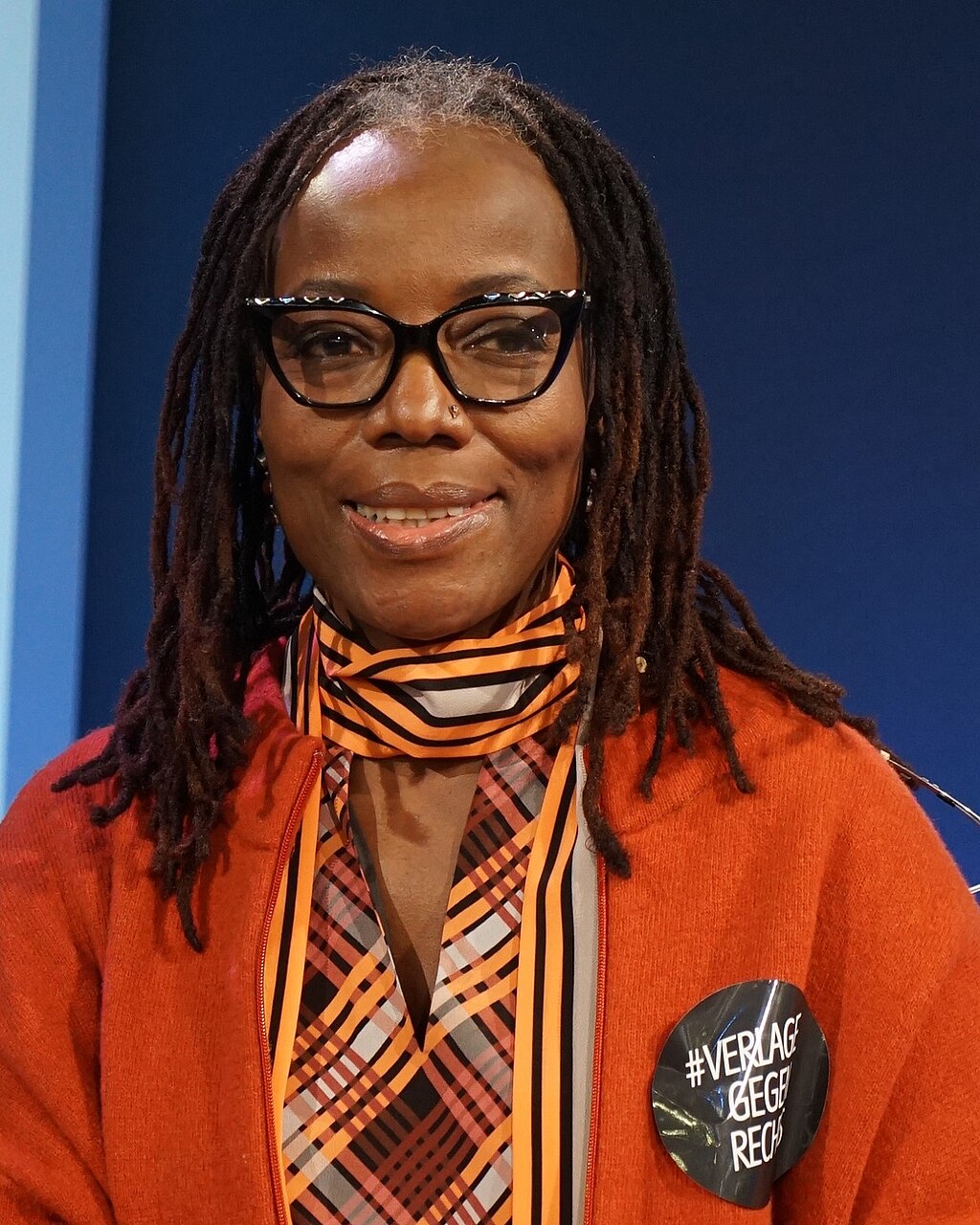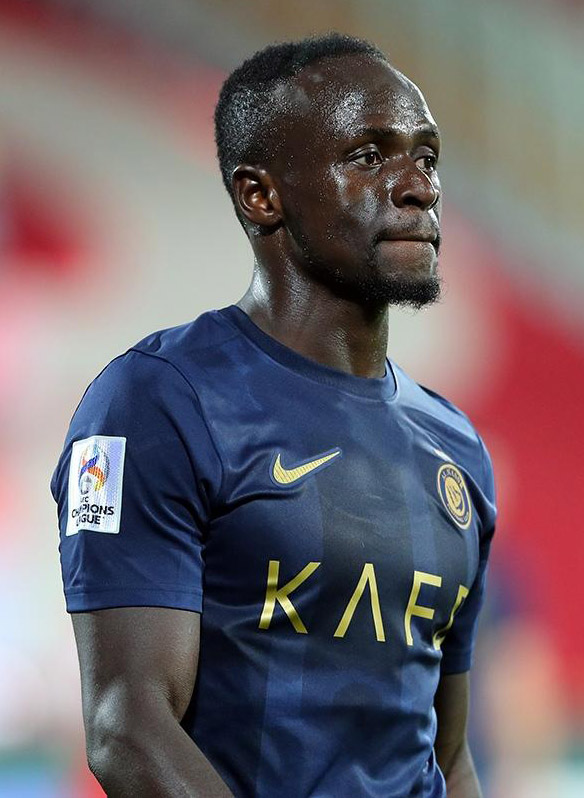Religious
Scholar Spotlight: Dickson Eyoh
The Elite Africa Project would be nowhere without the work of our talented scholars, whose expertise in their domains is central to our work. In this series, the Elite Africa Project interviews scholars about their work and what they think a deeper study of Africa’s elites can add to our understanding of the continent.
Our second guest is Dickson Eyoh, Associate Professor of Political Science and African Studies and Associate Chair in the Department of Political Science, University of Toronto. His work crosses multiple dimensions of African politics, including Africanist discourses around political development. Dr. Eyoh leads Elite Africa’s Religious/Spiritual Domain.
Good afternoon. Could you start by introducing yourself and your areas of research?
Hi, my name is Dickson Eyoh and I am currently Associate Professor of Political Science and African Studies at the University of Toronto. I've been here for a bit, since the mid-90s. My research interests are in a way within and outside political science. I would say I have three core and related areas of interest.
The first is state making in Africa broadly and the political economy of development.
The second area of interest is the way in which we can study politics through different forms of cultural production, like African Cinema and literary texts as sources for understanding everyday politics in Africa. Literary texts are especially useful for tracing the evolution of social and political thought in Africa. It's always been my impression, my sense, that people working in these cultural spheres—literature, cinema, and others—tend to be ten or twenty years ahead of social scientists in dictating trends in African politics.
And my last major area of research interest is in identities and politics: how various identities —youth, ethnicity, and the rest—shape political behaviour and political contestation. And within that, I am interested in urban citizenship and political practice.
D: And in your view, how would you define the term 'elite'?
DE: How would I define elite? Well, let's start with the perennial social science problem, that is, the absence of consensus on most of our working categories. If you look at the literature, there is no agreed-upon definition of what constitutes elites. But we can start from a very basic, common-sense understanding which is that we know that status or power in any society is not evenly distributed. Some people have more than others, some people are of higher rank than others. Those at the pinnacles of hierarchies are elites, in their own perceptions and in societal perceptions of them.
So what we call elites are those who are at the top of societal hierarchies, those who exercise significant influence or power in shaping outcomes. An elite doesn't operate in a vacuum and power doesn't operate in a vacuum. We have to look in terms of the institutions and organisations where power is exercised, where decisions are made. So elites would be the people who exercise extraordinary influence within organisations and therefore in decisions by those organisations. This is a basic understanding which academics and lay people would share and is for me the starting point of defining what constitutes an elite.
DO: Can I ask how you came to learn about the Elite Africa Project, how you came to be involved in it?
DE: Well, we would have to begin with the project lead, Antoinette Handley, who is a very esteemed colleague. She called and we were bouncing ideas off thinking about this. As the conversations evolved, it was a foregone conclusion that I would be implicated whether I agreed or not. So, basically, it was a broad discussion with Antoinette which then branched out to involve colleagues both in Canada and outside Canada. And, of course, even before the conversation, if you are a student of politics in Africa or politics anywhere, the central concern in politics is about power, right? Who exercises power and to what effect. Raising those questions about contemporary Africa seems to be crucial because African political science has never actually engaged as robustly as it should with the question of who rules or who governs. We have been very susceptible to easy generalisations about this question.
DO: And what can the study of African elites add to our understanding of Africa, or alternatively, what can it add to our understanding of political power?
DE: That's a huge question. You almost have to do an archaeology of Africanist political science to get to that. But, at the risk of excessive generalisation, I would say that our approach to the study of power in Africa has always been constrained and, I daresay, quite reductionist in its explanation of how political power is generated and deployed across time and space. Before I get crucified for this, let me try to explain as best as I can. What I mean essentially is if you look at the study of African politics or the political economy of development in Africa, it has been not so much about what is happening as such but trying to read Africa in terms of how supposedly prevalent political processes and behaviours are aiding or constraining movement of African societies to some ideal destination, the final station of the development process.
To lean on a crude periodization, we can start with the first generation of Africanist political scientists: the modernization school. The concern is with the modernising elites as the agents of change towards this brighter future, a sort of promised land, with elites of tradition as their antithesis. This dualism sort of presents each elite group as homogenous with more or less coherent political ambitions and behaviours. This, I believe, is because of the governing preoccupation of inquiry which was with unravelling factors that support or constrain modernising elites’ supposedly historical mission. The cost was inadequate concern with the complexities of elite formations, the kaleidoscopic nature of relations amongst elites operating in different and overlapping political arenas, and how these shaped the production and deployment of political power at different and linked political arenas. Now, if we skip to the critique of modernization which came from the left in the form of dependency theory and other neo-marxian perspectives, we basically have a new dualism in the study of elites and power. Elites are now represented as more or less dependent, comprador classes subservient to the interests of international capitalism and its agents and working against the aspirations of the masses. The orienting concern of analysis of power and politics is basically how more or less homogenous elites deploy state power to consolidate their economic dominance of society and to suppress popular aspirations—in effect, to handicap Africa’s journey to real development for the advancement of subaltern classes. One may add here that the left critics conveniently did not think of themselves as elites. Anyhow, the reductive tendencies and consequences for understanding how power is produced and deployed were not dissimilar to the modernization school even if the analytical vocabulary was different.
We skip to the moment of the postcolonial state crisis, these basic problems in the study of politics in Africa have persisted. The new categories of analysis such as neopatrimonialism and prebendalism are animated by a concern with explaining why post-colonial states have become the bêtes noires, instead of key agents of “real” development, drivers of an ideal African future of capitalist development and liberal democracy. The roots of failures of postcolonial states is elite-designed political systems based on interlocking patron-client networks and animated by patrons’ (elites’) desire to gain access to state resources for their benefit and the reward of their followers. Elites are more or less simply a venal, self-interested bunch of people, the architects and beneficiaries of political institutions that cater to their interests and not the collective good. I think it will not be difficult to show that lacking in this new narrative or perspective is any deep concern with complexities and variations in composition of elites, with the institutional or organisational contexts in which elite power is exercised, and with how these and other relevant factors shape decision-making and outcomes as well as state trajectories.
In his last book on The Postcolonial State in Africa, the late Crawford Young argues, and I agree, that diversification of state trajectories is a defining characteristic of the post-crisis era. So, I guess my basic point is that the way politics is organised and has played out in Cameroon is different from Ghana, it is different between Nigeria and Mozambique, between Kenya and Tanzania, etc. Close attention to national elite formations and how elites function within formal institutions and informal networks is imperative for more nuanced analysis of similarities and differences in how power is generated and deployed across African states and the consequences of this.
DO: So, in your view, who counts as a political elite in Africa, and have the characteristics of this group changed over time? Is that a fair question to ask?
DE: What’s key to political elites is that they are people at the apex of power in their self-perception and are reckoned to be so by the wider public. Have the characteristics of political elites changed? No, in terms of a basic prior requirement for membership, and yes, in that elite formations are not static, their composition changes with time. For the “no,” an enduring legacy of colonialism is that basic immersion in Western-style education—what Mudimbe refers to as the western knowledge library—is a basic, non-negotiable, unavoidable condition for political elite membership. Empirically, you would be very hard-pressed to find anyone who exercises significant power in any political arena within the jurisdiction of modern African states birthed by colonialism, whether it's politicians in ruling parties, leaders of opposition parties, a head of a major NGO, etc., whose major credential is not advanced Western-style higher education.
For the “yes,” obviously, as societies change, so too do the more than basic criteria for elite membership. Africa of 2022 is radically different from Africa of the 1960s: societal transformations during this period, especially increased socio-economic differentiation, have meant constant reshaping of societal hierarchies and criteria for qualification for elite status and composition of political elites. How and to what effect is a matter of comparative analysis, and the motivation of the Elite Africa Project.
DO: Maybe I’m just thinking of Nigeria because we have elections coming up, but there are some key political figures in Nigeria who don’t have clear higher educational qualifications. I’m thinking about current President Buhari or the APC presidential candidate Bola Tinubu. Is there a different path to elite status?
DE: Hmmm, think again. Buhari couldn’t become president of Nigeria if he didn’t speak fluent English. He is a product of Western-style education from primary school through an elite military academy that is patterned after Western ones like universities across the world. Tinubu is an accountant by training or something like that, I believe. Both confirm that relatively advanced Western education is the obligatory starting point for elite membership. One way to put this is that you cannot in today’s Africa find a notable political figure who is not fluent in a colonial language, which is the language for the conduct of state business.
DO: How do opposition parties or political activists fit into our understanding of political elites, especially in non-democratic countries? Can we consider them to be political elites of a sort or not?
DE: Yes, if we go back to my generic definition of political elites. The key here is to avoid the trap that political elites are a homogenous group. Elites who control ruling parties and opposition will share basic characteristics and are engaged in struggles to control the levers of central (state) power in order to shape the direction of society. Their ability to succeed or fail in their quest, of course, varies across time and space. Why this is the case is the core challenge of the Elite Africa Project. We are interested in the conditions of membership in specific elite formations, the institutional or organisational contexts for expression of elite power, and how these are related to other resources mobilised in the struggle for political power and its uses. I would say, yes, this is equally applicable to “non-democratic” countries. All you need as affirmation is to ask, how and why do non-democratic regimes persist and why and how do they fall? Elite support and counter-elite mobilisation will be prominent in answers to both questions.
DO: In the past year and a half there have been a lot of examples of military coups. Burkina Faso just had another one recently, but there’s also Mali, Guinea, Chad. How does political elite status intersect with the domain of coercive or military elites?
DE: This is a bit of a complicated question, partly due to our habit of creating categories for societal divisions for heuristic purposes when no clear-cut boundaries exist in real life. My response will follow the response to the previous questions in that political elite formations vary in composition, in political behaviours, etc., and that context and time are important in studying them. Military regimes don’t operate in a political vacuum—even the most authoritarian ones need some linkages with society—and political elites mediate these linkages. So, to use your language, there is always an intersection of military and political elites. What this looks like and the ramifications for political management depends on many conjectural circumstances. Most important is, perhaps, how determined and able military regimes are to narrow the arenas for political participation and thereby spaces of elite political participation. My intuition will be that military regimes at the onset are inclined towards constricting civilian political elite power but are compelled to increase reliance on political elites the longer they are in power. The fact that military rulers on occasion morph into civilian rulers complicates the matter.
DO: Do you have a favourite book or article that you've read recently about African politics?
There have been a number of interesting monographs from Cambridge and other academic presses recently. I just finished reading Regime Threats and State Solutions by Mai Hassan. It’s about Kenya. I have long been interested in the broadcast of post-colonial state power, how post-colonial regimes have gone about the business of asserting state power across national territories and what variations in their strategies tell us about commonalities and differences in state-making trajectories. In the post-crisis era, the era of political liberalisation, the greatest threats to regime stability are assumed to largely come from urban society: labour unions, students, urban-based professions, etc. And rural society has been the bedrock of regime stability. Hassan offers an empirically rich and provocative analysis of how Kenyan regimes, from Kenyetta to the present, have deployed state power to ensure their incumbency. What stands out is the explanation of how regime maintenance rests on the management of relations between state agents (local provincial administrators) and local political elites through combinations of coercion and co-optation. The dynamics and architecture of these interactions is varied across space even within the regional context of her study. It’s a very intriguing and provocative analysis of the importance of elite behaviours and relations to the process of state-making at the most granular level. It adds to the agenda-setting work on the microfoundations of processes of state-making in postcolonial Africa by Catherine Boone, amongst others.
DO: Finally, what are your hopes for the Elite Africa Project; what do you hope comes out of this work?
DE: As academics, we tend to be wary of investing in studying elites for many reasons. One reason—this is not an original observation—may be discomfort with our societal positions which others may reasonably consider elite and therefore privileged. The truth is that status and power is unevenly distributed in societies across the world, in the past as in the present. Some people, elites, exercise extraordinary influence in decision-making within the domains in which they operate, and you can see the effects on society of the decisions they help shape. My basic hope is for us to bring nuance and complexity to our understanding of politics in Africa. For many of the reasons I have noted, deep diving into patterns of elite formation across domains and ways in which elites across these domains exercise their power is imperative to a nuanced understanding of the rhythms of politics in Africa and their bearing on African prospects.







